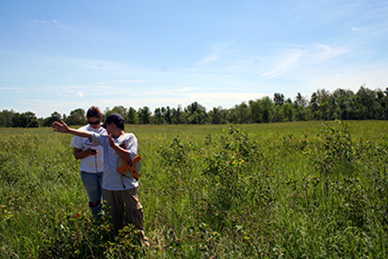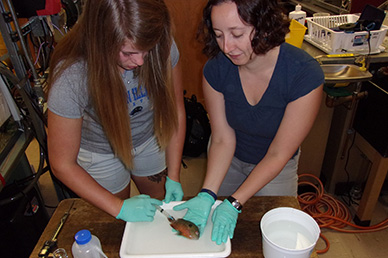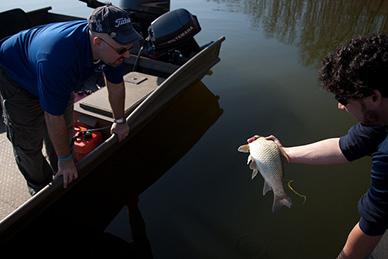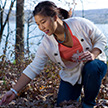More than 98% of our graduates
from the last 5 years are employed
or continuing their education.
The graduate program in Biological Sciences affords students an opportunity to pursue advanced training in many of the major disciplines of the biological sciences.
Students specialize in one or more areas of the biological sciences including conservation biology, ecology, ornithology, gene expression and development, bioenergy, plant anatomy, fisheries biology, bacteriology, wildlife biology, behavioral ecology, toxicology, parasitology, phylogenetics, evolution, morphology, community ecology, adaptations, mitochondrial physiology, neuroscience, Alzheimer's disease and neurodegenerative diseases, ecological genetics, algal ecology, behavioral ecology and genetic engineering.
In addition to well-equipped laboratory facilities, computer facilities, a scanning electron microscope facility, biotechnology center, G.I.S. laboratory, extensive herbarium collections, and a multi-room greenhouse for teaching and research, a number of outdoor facilities, including state parks, nature preserves, local streams, rivers, reservoirs, and watersheds are available for field studies.







